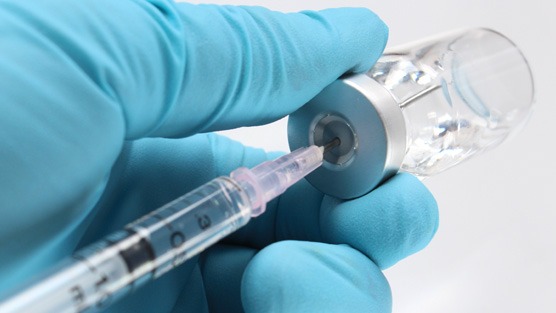Hormone Therapy for Cancer in Ireland
Search and Compare the Best Clinics and Doctors at the Lowest Prices for Hormone Therapy for Cancer in Ireland

Find the best clinics for Hormone Therapy for Cancer in Ireland
No clinics available
Thailand offers the best prices Worldwide
Price: $ 15

- Home
- Ireland
WHY US?
At Medijump, we're making medical easy. You can search, compare, discuss, and book your medical all in one place. We open the door to the best medical providers worldwide, saving you time and energy along the way, and it's all for FREE, no hidden fees, and no price markups guaranteed. So what are you waiting for?

Free

Best Price

Widest Selection

Risk-Free
What you need to know about Hormone Therapy for Cancer in Ireland

Hormone therapy (also known as hormonal therapy, hormone treatment, or endocrine therapy) is a cancer treatment that uses medicine to lower or block the number of hormones in the body to stop or slow the growth of cancer. The aim of the procedure is to treat cancer and ease cancer symptoms. The procedure is mainly used to treat breast cancer, ovarian cancer, womb cancer, and prostate cancer that use hormones to grow and is usually used along with other cancer treatments.
What does a Hormone Therapy for Cancer Procedure Involve?
Hormone therapy involves taking medication that prevents cancer cells from getting the hormones they need in order to grow, which may be given orally (in pills that you swallow) or injected into a muscle in your hip, thigh, arm, leg, or belly. Some frequently used hormone therapy drugs are abiraterone, anastrozole, exemestane, fulvestrant, letrozole, leuprolide, and tamoxifen. In some cases, your doctor may also remove the gland responsible for hormone production with surgery.
How Long Should I Stay in Ireland for a Hormone Therapy for Cancer Procedure?
Your length of stay depends on how many cycles are needed for your specific case. During your hormone therapy, you will need to meet your oncologist regularly for follow-up visits to see how your body is responding to the medications.
What's the Recovery Time for Hormone Therapy for Cancer Procedures in Ireland?
You may be able to resume your normal activities and work the next day after you receive the hormone medications or when you do not feel any symptoms that interfere with your ability to perform your daily activities. If you undergo surgery to remove the gland responsible for hormone production, you may need to take 4 weeks off work and avoid any strenuous activities, such as intense exercise, for 6 to 8 weeks.
What sort of Aftercare is Required for Hormone Therapy for Cancer Procedures in Ireland?
Your doctor will give you aftercare instructions, which involve diet, exercise, and restrictions. You will need to attend regular follow-up checkups after your hormone therapy is complete to discuss ways of reducing and treating side effects as well as to watch for cancer recurrence.
What's the Success Rate of Hormone Therapy for Cancer Procedures in Ireland?
Hormone therapy has been shown to reduce the risk of cancer recurrence if performed along with other cancer treatments. It is also effective way to put cancer patients in remission, however, the treatment has some side effect and risks, such as hot flashes, fatigue, nausea, joint or muscle pain, blood clots, cataracts, stroke, heart disease, osteoporosis, erectile dysfunction (in men), as well as vaginal irritation, vaginal discharge, and vaginal dryness (in women).
Are there Alternatives to Hormone Therapy for Cancer Procedures in Ireland?
Other cancer treatments, such as surgery, immunotherapy, targeted drug therapy, and chemotherapy can be your alternative options. Discuss with your doctor the best choice for your specific condition.
What Should You Expect Before and After the Procedure
Cancer can prevent you from enjoying life and cause painful symptoms, and it can be life-threatening. After successful hormone therapy, you should be able to enjoy the things you love, your symptoms are relieved, and your life may be prolonged. Many patients are put in remission after treatment, meaning no cancer cells are found in their bodies.
Whilst the information presented here has been accurately sourced and verified by a medical professional for its accuracy, it is still advised to consult with your doctor before pursuing a medical treatment at one of the listed medical providers
No Time?
Tell us what you're looking for and we'll reachout to the top clinics all at once
Enquire Now

Popular Procedures in Ireland
Prices Start From $714

Prices Start From $2,487

Prices Start From $95

Prices Start From $2,487

Recommended Medical Centers in Ireland for procedures similar to Hormone Therapy for Cancer

- Interpreter services
- Translation service
- Religious facilities
- Medical records transfer
- Medical travel insurance
- Health insurance coordination
- TV in the room
- Safe in the room
- Phone in the room
- Private rooms for patients available

- Interpreter services
- Translation service
- Religious facilities
- Medical records transfer
- Medical travel insurance
- Health insurance coordination
- TV in the room
- Safe in the room
- Phone in the room
- Private rooms for patients available

- Interpreter services
- Translation service
- Religious facilities
- Medical records transfer
- Medical travel insurance
- Health insurance coordination
- TV in the room
- Safe in the room
- Phone in the room
- Private rooms for patients available

- Interpreter services
- Translation service
- Religious facilities
- Medical records transfer
- Medical travel insurance
- Health insurance coordination
- TV in the room
- Safe in the room
- Phone in the room
- Private rooms for patients available

- Interpreter services
- Translation service
- Religious facilities
- Medical records transfer
- Medical travel insurance
- Health insurance coordination
- TV in the room
- Safe in the room
- Phone in the room
- Private rooms for patients available

- Interpreter services
- Translation service
- Religious facilities
- Medical records transfer
- Medical travel insurance
- Health insurance coordination
- TV in the room
- Safe in the room
- Phone in the room
- Private rooms for patients available

- Interpreter services
- Translation service
- Religious facilities
- Medical records transfer
- Medical travel insurance
- Health insurance coordination
- TV in the room
- Safe in the room
- Phone in the room
- Private rooms for patients available

- Interpreter services
- Translation service
- Religious facilities
- Medical records transfer
- Medical travel insurance
- Health insurance coordination
- TV in the room
- Safe in the room
- Phone in the room
- Private rooms for patients available

- Interpreter services
- Translation service
- Religious facilities
- Medical records transfer
- Medical travel insurance
- Health insurance coordination
- TV in the room
- Safe in the room
- Phone in the room
- Private rooms for patients available

- Interpreter services
- Translation service
- Religious facilities
- Medical records transfer
- Medical travel insurance
- Health insurance coordination
- TV in the room
- Safe in the room
- Phone in the room
- Private rooms for patients available
Hormone Therapy for Cancer in and around Ireland
Introduction
Ireland, also known as the Republic of Ireland, is a country located in north-western Europe that occupies 26 of 32 counties on the island of Ireland. The country’s breath-taking landscape, wonderful people, and fascinating history have made it an unforgettable destination for many visitors. Aside from its beauty, more and more people also come to Ireland for high-quality healthcare. The country is a newcomer to the medical tourism market. However, it’s seen as an increasingly attractive destination due to the reasonably priced and high standard of clinical care available in the country. Most foreign patients come for cosmetic surgery and dental treatments, but many hospitals and clinics in the country offer a wide variety of services, such as cardiology, pathology, pulmonary, and gynecology. Also, the Joint Commission International has accredited several hospitals in the country, most of which are located in Dublin.
Popular Cities and Regions in Ireland
Ireland’s capital and largest city, Dublin, is the most popular tourist destination within the country. In fact, it’s the fourth most visited European capital. It’s filled with excellent pubs serving the perfect pint of Guinness, amazing Georgian architecture, and layers of fascinating history. Tourists in this city usually visit the Guinness Storehouse Factory, tour the Old Jameson Distillery, admire the Spire of Dublin, explore Dublin Castle, and marvel at the beauty of St. Patrick’s Cathedral. Another famous city is Cork, which is the second-largest city in the country. It’s a youthful cosmopolitan city packed with artisan coffee bars and snug pubs. Tourists usually come to kiss the Blarney Stone for good luck, enjoy the coastal landscape in Mizen Head, or hike around Gougane Barra. Other popular cities and towns include Galway, Killarney, Kilkenny, and Letterkenny.
Transport in Ireland
The main airport in Ireland is Dublin Airport. It connects the country with numerous cities around the world, including New York, Abu Dhabi, and Hong Kong. Trains and buses are available to travel around the country. However, public transportation is generally sparse in rural areas. Therefore, renting a car is the best mode of transport. Taxis and Uber are available to travel inside major cities.
Visas in Ireland
Ireland has opted out of the Schengen Area. The country allows all EU citizens, as well as citizens of 56 other countries (such as the UAE and the US), to stay without a visa for up to 90 days. Citizens of other countries are required to apply for a visa in advance.
Weather in Ireland
Summer (June – September) provides plenty of sunshine and lower levels of rainfall, with an average temperature of 14°C - 16°C. Winter (October – February) is chilly, with ample rainfall and some snow. Spring and autumn are generally pleasant, with warmer temperatures and more sunshine.
Additional Info
- Local Currency: The official currency is the euro. 1 EUR is approx. 1.08 USD.
- Money & Payments: ATMs are easy to find. Credit and debit cards are widely accepted. Tipping is expected in some places, typically 10% for decent service.
- Local Language: There are several languages used in Ireland. English has been the predominant first language since the late 18th century, but Irish is still widely used by a small percentage of the population.
- Local Culture and Religion: The constitution of Ireland guarantees freedom of religion. Christianity is the largest religion. However, Islam, Hinduism, Judaism, Buddhism, Neo-Paganism, and other religions are present.
- Public Holidays: Some of the most celebrated public holidays are New Year’s Day, St. Patrick’s Day, Easter Monday, Christmas Day, and St. Stephen’s Day.
Popular Searches
- Plastic Surgery in Thailand
- Dental Implants in Thailand
- Hair Transplant in Thailand
- Breast Augmentation Thailand
- Gastric Sleeve in Thailand
- Gender Reassignment Surgery in Thailand
- Laser Hair Removal in Bangkok
- Botox in Bangkok
- Dermatology in Bangkok
- Breast Augmentation in Bangkok
- Coolsculpting in Bangkok
- Veneers in Turkey
- Hair Transplant in Turkey
- Rhinoplasty in Turkey
- Stem Cell Therapy in Mexico
- Rhinoplasty in Mexico
- Liposuction in Mexico
- Coolsculpting in Tijuana
- Rhinoplasty in Korea
- Scar Removal in Korea
- Gastric Sleeve in Turkey
- Bone Marrow Transplant in India
- Invisalign in Malaysia
- Plastic Surgery in the Dominican Republic
- Tummy Tuck in the Dominican Republic
- Plastic and Cosmetic Surgery in Poland
- Rhinoplasty in Poland
- Hair Implant in Poland
- Dental Implants in Poland
- IVF in Turkey